Landmarks of gaming: 1980 - 2011
A look back at the games that captured the essence of every year
In 1980, a perplexed and delighted public were getting their heads around Defender, the Mattel Intellivision and this new thing called videogames. Skip forward to2011 and there's 30 years' worth of canon to revisit - but as with anything, the best-regarded games don't give the full picture.
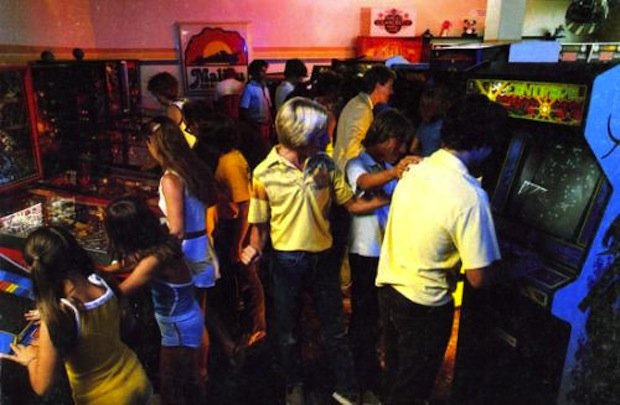
Viewed through the sepia-tinged glasses of nostalgia, it’s easy to spot our favorite games for every year. But remove those glasses, and oftentimes the very best games aren't the most important ones. Our goal here: to uncover the one game that captures the essence of each year in gaming history.
So consider this a look back not at the best or worst games of the past 30 years, but at the titles that helped define their times, during the times they existed. And remember: this isn’t a comprehensive list. We challenged ourselves with picking only one title per year, so sometimes we focused on the zeitgeist instead of the very best game of that year—the game that reflected what happened, rather than the one that influenced gaming for years to come. Indeed, this is not the story of gaming's finest hours, but of themedium as a whole, as it happened...
1980: Pac-Man
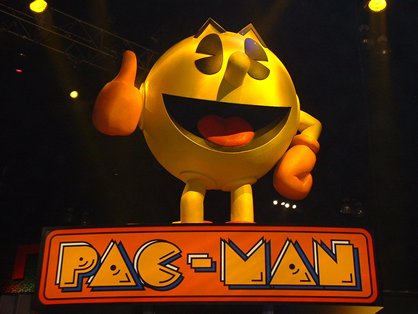
The game: Not the first game by a long shot – but the first superstar. Cartoons have Mickey Mouse, comics have Superman, and games have Pac-Man. You know a medium's arrived when it gets a super-character whose likeness transcends the form itself.
Significance: It's not like games wouldn't have taken off without a mascot to grace cartoons and popsicles, but it sure didn't hurt. If Pac-Man hadn't done it, someone else would've – then again, they said the same thing about Elvis.
1981: Asteroids Deluxe
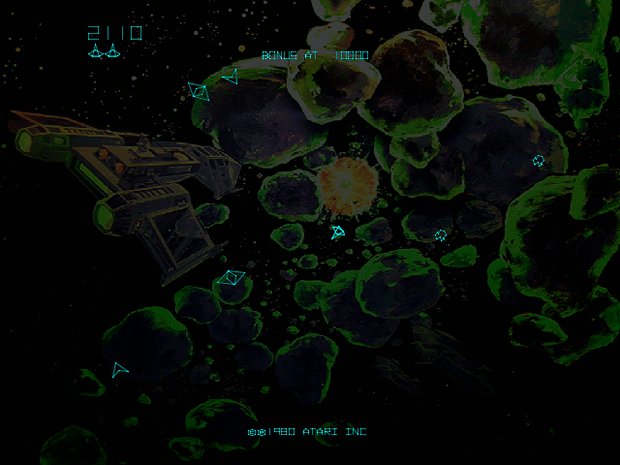
The game: A gussied-up Asteroids (the Gears of War to Space Invaders' Halo), Deluxe made the cover for issue #1 of the first gaming magazine, Electronic Games.
Weekly digests, tales from the communities you love, and more
Significance: The game? Minimal. The publication that profiled it: Infectious (if injudicious) enthusiasm, star treatment of programmers and writers alike, and an inexplicable tendency to talk of “gamers” as a separate species. Which is to praise these intrepid shag-carpet nerds for inventing gams jarnalism as we know it.
1982: Q*Bert
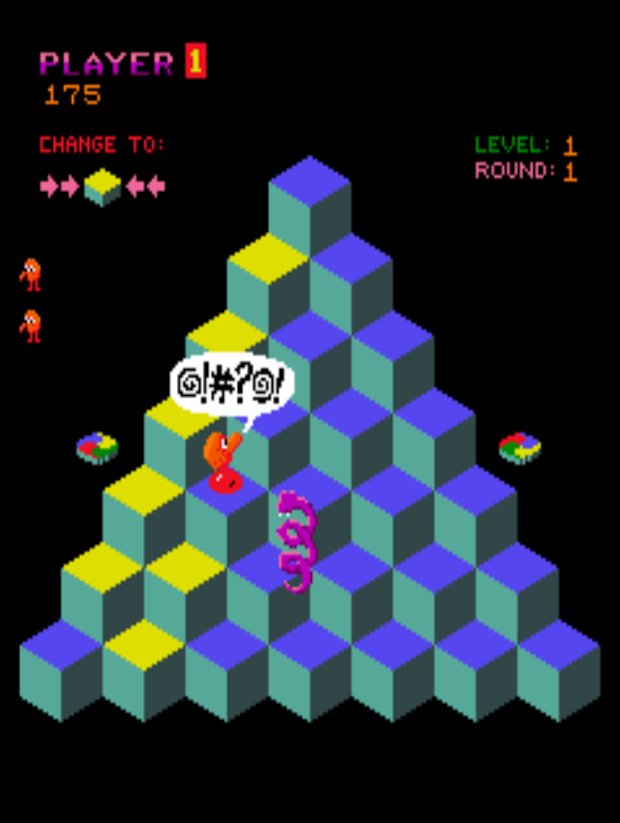
The game: Having mastered sci-fi and fantasy, the logical next step for the young industry was a platformer with a diagonal joystick in which a swearing, sentient proboscis evades snakes and off-brand tribbles.
Significance: In '82, people just did things for shits and giggles: listening to Men at Work, watching Porky's, fighting the Falklands War. Amid this climate of frivolity, why shouldn't the infallible games industry produce the least-comprehensible hit ever?
1983: E.T. The Extra-Terrestrial
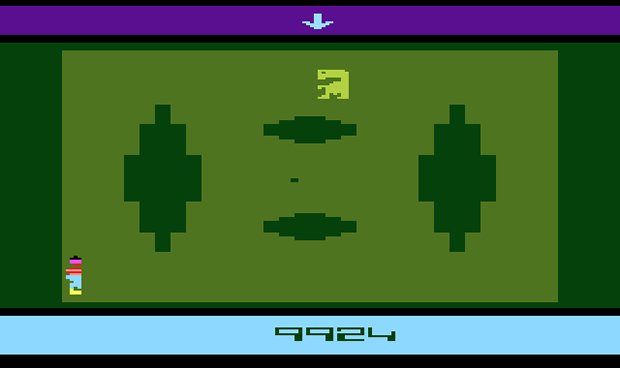
Above: Yes, it came out at the end of '82. That's not the point
The game: Blocky turd/penis hybrid quests after chocolatey treats in the exhaustively-documented travesty that launched a thousand “have you heard about the landfill in New Mexico?” articles.
Significance: Players bitterly disappointed by the failure of early consoles to replicate the thrill of Hollywood blockbusters or arcade hits like Pac-Man abandoned gaming in droves; the resulting crash damn near killed the young industry.
1984: Paperboy
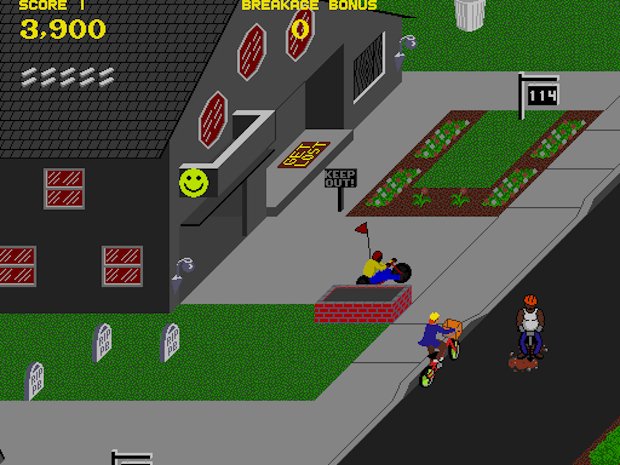
The game: Chastened by the preceding annus horribilis (not what you think, look it up), Atari scaled back the crazy grandeur to find novelty and challenge in the humble (yet still, apparently, stupidly difficult) job of, um, paperboy.
Significance: Continued the Burger Time/Root Beer Tapper project of broadening games' horizons by looking closer to home. Kids would complete their after-school jobs as fast as possible, so as to get home and play games about those same jobs.
1985: Super Mario Bros
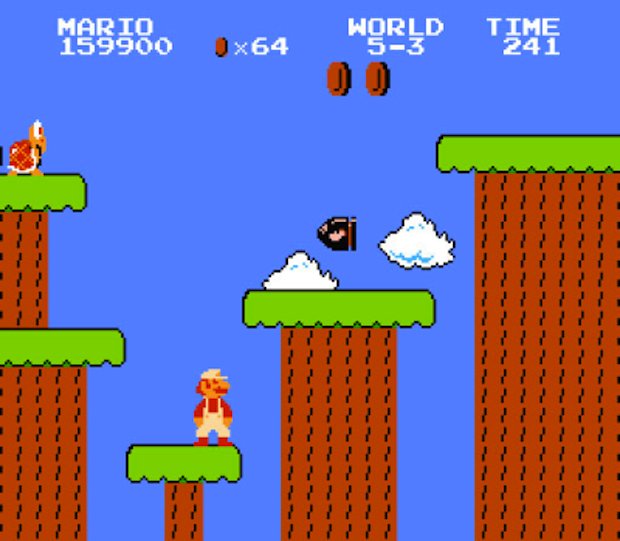
The game: While the title implied a jazzed-up single-screen Mario Bros, Nintendo's ambitions were grander. You could play the new SMB on your new NES and think about how everything new in '85 rocked, as you cracked open an ice-cold New Coke.
Significance: '85 saw the world get bigger, with global events ignored in living rooms worldwide thanks to cable and satellite TV. Games like SMB, Ghosts 'n' Goblins and Gauntlet took players to new, richer places too – ones where We Are the World wasn't every second song on the goddamn radio.
1986: Dizzy %26ndash; The Ultimate Cartoon Adventure
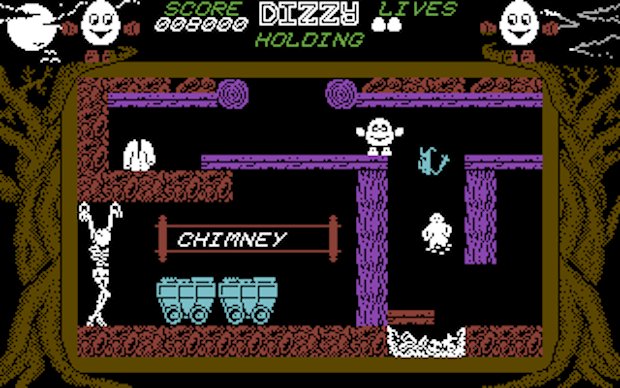
The game: Sentient egg with boxing gloves and stomping boots navigates a series of static platform levels that play more like Monkey Island-style item puzzles.
Significance: Dizzy – and his creators, the Oliver Twins – personified a warm-beer-drinking, left-hand-driving invasion force of British coders operating out of bedrooms and suburban nooks. With Ultimate bought up by US Gold and Ocean churning out profitable movie licenses, the New Wave of British Bedroom Coding broke big in '86.


